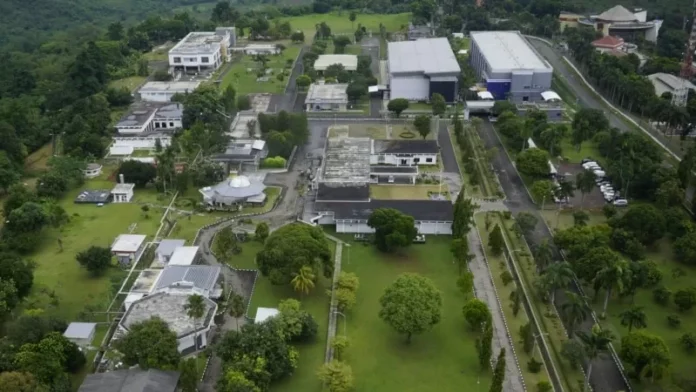HANOI, Vietnam — The tech industry in Vietnam is facing a major setback as the country’s government has proposed a new draft law to tighten rules on data protection and limit data transfers abroad. This move has sparked concerns among U.S. tech companies, who fear that it will hinder their growth and operations in the country.
Vietnam, with a population of 100 million, is one of the world’s largest markets for online platforms such as Facebook, and is looking to expand its data center industry with foreign investments in the coming years.
According to Jason Oxman, who chairs the Information Technology Industry Council (ITI), a trade association representing major tech companies like Meta, Google, and data center operator Equinix, the new draft law will make it difficult for tech companies, social media platforms, and data center operators to reach their daily customers.
The draft law, which is currently being discussed in parliament, is also aimed at providing authorities with easier access to information, and was proposed by the Ministry of Public Security, as stated by both Vietnamese and foreign officials.
Despite attempts to contact them via email and phone, the Ministry of Public Security and the Information Ministry have not responded.
The draft law is expected to be passed on November 30, 2021, if it meets the necessary requirements, according to the parliamentary schedule, which is subject to changes.
At present, Vietnam already has regulations in place that limit cross-border transfers of data in certain situations, but these rules are rarely enforced.
The potential impact of this new law on foreign investment in Vietnam is unclear. In August, Reuters reported that Google was considering setting up a large data center in southern Vietnam, before the draft law was presented in parliament.
Research firm BMI had previously stated that Vietnam has the potential to become a major player in the regional data center industry, as the country’s restrictions on foreign ownership are set to end next year.
One of the main provisions of the draft law is that companies will need prior authorization for the transfer of “core data” and “important data” overseas. However, these terms are currently vaguely defined, which could create obstacles for foreign businesses.
According to Oxman, this would hinder foreign businesses’ operations in Vietnam.
Tech companies and other firms rely on cross-border data flows to reduce costs and improve services. However, several countries, such as the European Union and China, have limited these transfers, citing the need to protect privacy and sensitive information.
Under the draft law, companies will be required to share data with the ruling Communist Party and state organizations in various, loosely defined situations, including “fulfilling a specific task in the public interest.”
Concerns have been raised by the U.S. tech industry with Vietnamese authorities over the “undue expansion of government access to data,” according to Oxman.
Adam Sitkoff, Executive Director of the American Chamber of Commerce in Hanoi, has also expressed concerns about the new law, stating that it would create significant compliance challenges for most private sector companies. He also added that discussions were underway to persuade authorities to reconsider the rushed legislative process for this law.
In conclusion, the proposed draft law on data protection and data transfers in Vietnam has raised concerns among U.S. tech companies, who fear it will hinder their growth and operations in the country. This move could also impact foreign investment in Vietnam, which has been seen as a potential major player in the regional data center industry. The tech industry is hoping that the authorities will reconsider and revise the draft law to avoid any potential setbacks, and instead work towards creating a favorable environment for businesses to thrive.

